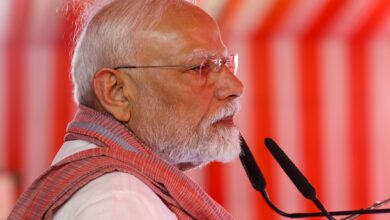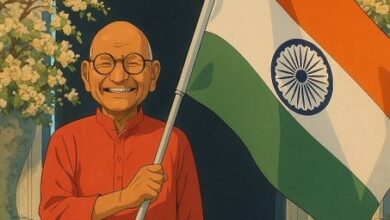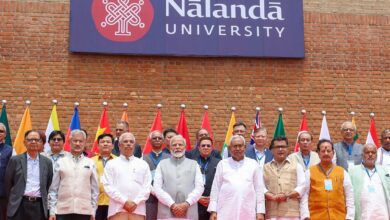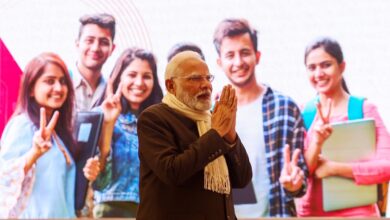Tribute to Manmohan Singh: former prime minister combined courage, vision & humility
India’s fourteenth Prime Minister, Dr. Manmohan Singh, was rightly acclaimed as a thinker and a scholar. He will be remembered for his diligence, academic approach to work, accessibility, and unassuming demeanour.
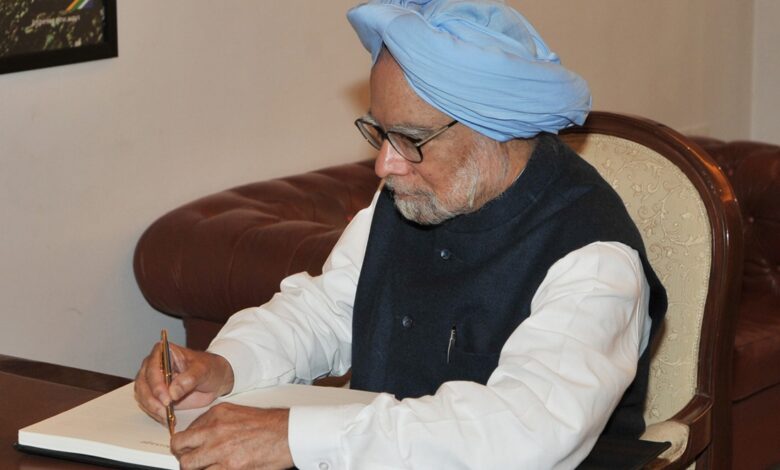
By C Rangarajan
My contact with Manmohan Singh goes back to the end of the 1960s when both of us were in New York. He was in the United Nations and I was teaching at New York University. Later on, we started working together in the mid-1980s when he was governor of the Reserve Bank of India and I was a deputy governor.
If you look at his entire career, three important qualities stand out. One is vision, the other is courage and the third is humility. Ideas are needed to move the system forward, but you must have vision. Adequate vision must be supplemented by courage, which we saw in the early 1990s.
The most important aspect of Dr Singh’s actions is the exhibition of both ideas and implementation. The reforms introduced in the early 1990s, and the subsequent actions that he took in the period when he was PM, all indicate this combination of ideas and implementation.
We worked together and there was an exchange of ideas. Even when we differed, we did so politely. He tried to take everybody along with him, and he gave the freedom to discuss freely. Finally, a conclusion was reached in which everybody agreed.
There were occasions when we differed. But that did not come in the way of executing the ideas. There was also the quality of humility in him, which was extraordinary. For a person who held such important positions, he never rode roughshod over anybody.
For example, in bringing to an end the system of issuing ad-hoc treasury bills, when I mentioned to him how this system acted a way that it resulted in the automatic monetisation of the fiscal deficit, he heard me out and then agreed, even though I did not expect he would agree to it that quickly. But he did, because when he saw the logic, he tried to follow it and implement whatever suggestion was made.
Bringing the issue of these bills to an end could result in the cost of govt borrowing going up. But he was willing to bear it because the underlying principle was correct.
Again, when we moved from the system of dual exchange rate to a system in which the market fully determined the exchange rate, there were many arguments against the move. There were suggestions that we move slowly. But when I discussed it with him, we decided that it was better to move in one step. He once again saw the benefit that comes from a particular action and immediately agreed to implement it.
What he cared for is the benefit to the nation, benefit to society. If that demanded a particular action, he would take that action immediately.
The 1991 Economic Reforms
Originally, a decision was taken to devalue the rupee in two stages. I was in charge of announcing the exchange rate and made the first move.
Before the second move could be made, there were some concerns whether we should devalue the rupee to such an extent. We had discussed the problem thoroughly and a conclusion had been reached and was also communicated to the President. But then the Prime Minister (PV Narasimha Rao) had some concerns on going ahead with the second step. Dr Singh said he would get in touch with me but then he went on saying that he was not able to reach me. By the time he reached me, I’d already “jumped the step”.
If he had backed down at that time, it would have reflected badly on India. Our ability to borrow in the market would have been hindered as it would have been seen as our unwillingness to take appropriate action.
When the decision to devalue the rupee was taken, Dr Singh wrote a cheque and asked for it to be credited to the PM’s Relief Fund. The amount represented difference in rupee value of his assets abroad following the devaluation. That showed how he was not willing to benefit by any decision personally. That shows the man’s character, that his integrity was beyond question.
He certainly managed the system both as the FM and the PM very well. History will remember him as one of the ablest PMs. Between 2005-06 and 2007-08, India had a growth rate in excess of 9%, which is outstanding.
He will be remembered for ushering in efficiency in the system. That is what compelled him to move towards a competitive system. That is an important lesson for a country like India because if we really want to be able to compete in the world, let us say through exports, then efficiency becomes critically important. Without an efficient economic system, we cannot do it.
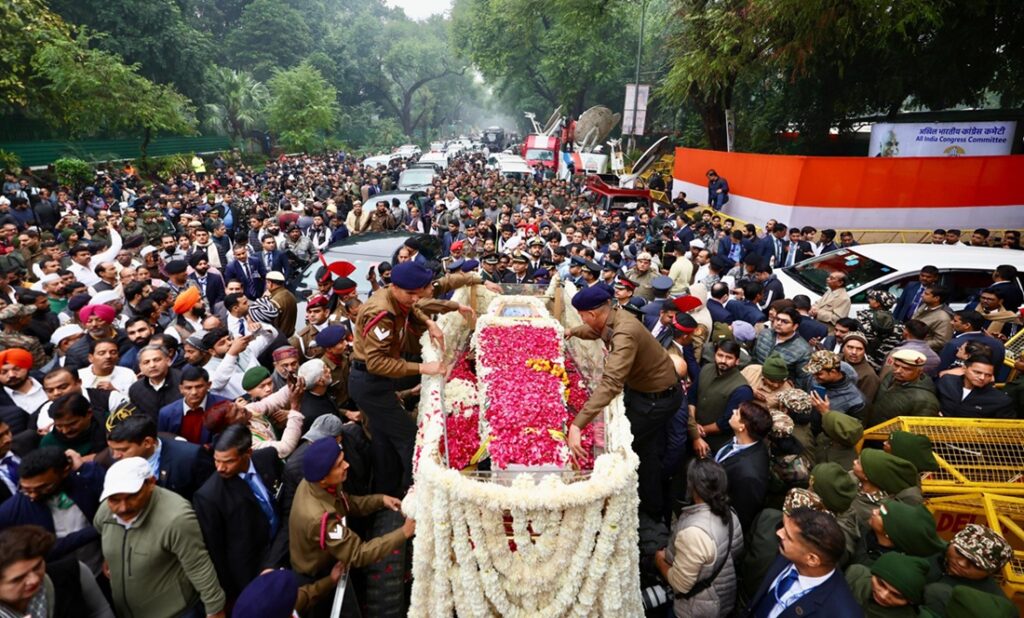
Profile of Manmohan Singh
India’s fourteenth Prime Minister, Dr. Manmohan Singh, was rightly acclaimed as a thinker and a scholar. He will be remembered for his diligence, academic approach to work, accessibility, and unassuming demeanour.
Dr. Manmohan Singh was born on September 26, 1932, in a village in the Punjab province of undivided India. He completed his Matriculation examinations from Punjab University in 1948. His illustrious academic journey took him from Punjab to the University of Cambridge, UK, where he earned a First Class Honours degree in Economics in 1957. Dr. Singh followed this with a D. Phil in Economics from Nuffield College at Oxford University in 1962. His book, India’s Export Trends and Prospects for Self-Sustained Growth (Clarendon Press, Oxford, 1964), was an early critique of India’s inward-oriented trade policy.
Dr. Singh’s academic credentials were further strengthened by his years on the faculty of Punjab University and the prestigious Delhi School of Economics. He also served briefly at the UNCTAD Secretariat, presaging his later role as Secretary General of the South Commission in Geneva between 1987 and 1990.
In 1971, Dr. Singh joined the Government of India as Economic Advisor in the Commerce Ministry. This was soon followed by his appointment as Chief Economic Advisor in the Ministry of Finance in 1972. Over his career, Dr. Singh held several significant positions, including Secretary in the Ministry of Finance, Deputy Chairman of the Planning Commission, Governor of the Reserve Bank of India, Advisor to the Prime Minister, and Chairman of the University Grants Commission.
From 1991 to 1996, Dr. Singh served as India’s Finance Minister, marking a turning point in the nation’s economic history. His role in ushering in a comprehensive policy of economic reforms remains globally celebrated. Those years, marked by transformative change, are inseparably linked to his vision and leadership.
Dr. Singh received numerous awards and honours during his lifetime. Among the most prominent are India’s second-highest civilian honour, the Padma Vibhushan (1987), the Jawaharlal Nehru Birth Centenary Award of the Indian Science Congress (1995), the Asia Money Award for Finance Minister of the Year (1993 and 1994), the Euro Money Award for Finance Minister of the Year (1993), the Adam Smith Prize of the University of Cambridge (1956), and the Wright’s Prize for Distinguished Performance at St. John’s College in Cambridge (1955). He was also conferred honorary degrees by esteemed universities, including Cambridge and Oxford.
Dr. Singh represented India at numerous international conferences and organizations, including leading Indian delegations to the Commonwealth Heads of Government Meeting in Cyprus (1993) and the World Conference on Human Rights in Vienna in 1993.
In his political career, Dr. Singh served as a Member of India’s Upper House of Parliament (the Rajya Sabha) from 1991 and was the Leader of the Opposition between 1998 and 2004. He was sworn in as Prime Minister on 22nd May 2004, following the general elections, and took the oath of office for a second term on 22nd May 2009. He is survived by his wife, Mrs. Gursharan Kaur and their three daughters.
(Source: Economic Times. About Author: C Rangarajan is former governor of RBI)

